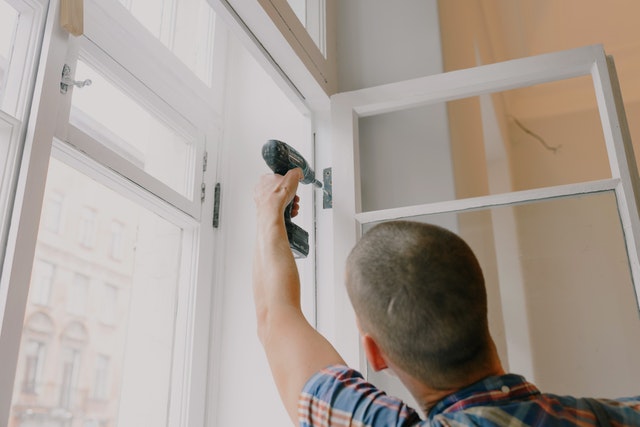
One of the key responsibilities landlords have is responding to their tenants’ complaints. How you do this task can make a difference in how successful you’re as a landlord. If you address your tenant’s concerns properly, you can keep your renters happy and they’ll be more likely to renew their lease!
This will prevent vacancies and ensure you don’t lose out on valuable rental income. However, a tenant that feels their requests aren’t addressed appropriately is less likely to continue renting your property.
Generally speaking, complaints from tenants usually fall under four categories: maintenance, pets, noise, and pest issues. In today’s article, you’ll learn everything you need to know when it comes to addressing common tenant complaints!
Maintenance Issues
This is the most common kind of tenant complaint. Your tenant may need help fixing a leaky faucet, a sticky door or a broken appliance. Whether you’re an experienced or new landlord, it’s your responsibility to ensure that you respond to your tenant as quickly as possible.
When you address a tenant’s concerns quickly, your renter will feel respected and cared for. On the other hand, if it takes you days or weeks to respond, your tenant will likely become frustrated and may take action against you.
Most states have laws that govern how quickly landlords must respond to tenant maintenance requests. In Texas, the Implied Warranty of Habitability is governed by TX Prop. Code § 92.052.

When it comes to repairs, you’ll have seven days to have them fixed once you’ve been notified. Or, if the issue involves the lack of heat, air conditioning or water, you will need to remedy the issue within three days. We recommend responding to emergency issues as quickly as possible.
Before entering your tenant’s residence, make sure to notify them first. Texas landlords must provide their tenants with reasonable notice prior to entering the unit.
Pet Problems
Many landlords will receive pet complaints from their tenants. These complaints can involve issues like excessive noise, strong odors, property damage, or threats to your tenant’s safety. When you start to address the issue, first gauge how serious the situation is.
Examples of smaller nuisances include dogs barking or owners not cleaning up after their pets. As long as you address these complaints within seven days, there should be no further issues.
However, for some pet complaints, an immediate response is necessary. Examples of high-priority complaints include when a neighbor or another tenant is keeping an illegal animal or an animal that threatens the safety of others.
To resolve the matter, talk to the tenant who lodged the complaint with you as well as the individual the complaint is about. This will help you better understand both sides of the story and gather more information.

You may also want to speak to other tenants and neighbors to ask about their experiences as well. After you’ve done this, you can determine whether the issue has violated lease agreement terms or local ordinances regarding pets.
Most landlords restrict the pets they allow into their rental property based on their weight, number, and even size. If the individual the complaint is about is one of your tenants who violates any of these rules, then you may want to serve the tenant with a 3 days notice to vacate.
While you don’t have to give them an option to fix their lease violation, consider allowing the tenant to remedy the issue if it’s a first-time offense.
Noise Complaints
Unfortunately, noise complaints are a very common occurrence. It’s a landlord’s responsibility to ensure their tenants live in peace and quiet, free from unnecessary disturbances. That said, the right to quiet enjoyment doesn’t mean that a tenant gets to live in a home that is free from outside noise.
There is a difference between excessive and normal noise levels.
Examples of excessive noise include disruptions caused by neighbors yelling, rowdy parties and loud music. Regular noise is a result of everyday activities, such as doors closing, neighbors having casual conversations, or the sounds of footsteps.

There are no specific laws that address individual noises and, in most cases, it’s up to the landlord to address what is and what isn’t excessive noise. To resolve noise complaints, first, speak to the tenant who raised the issue.
This will enable you to find out things like how often the noise occurs and how long it lasts. Also, be sure to ask what steps the tenant has taken to resolve the issue on their own. If the issue is a one-time thing, simply speaking to the neighbor who caused the disturbance will likely prevent further issues.
However, if noise violations occur repeatedly, then you may want to escalate the issue. If the offender is your tenant, you can request that they remedy the issue or move out. Should the repeat noise complaints be about an individual who is not your tenant, you may want to involve local authorities.
Pest Infestations
Pest-related issues are another common cause of tenant complaints. Common pests include bedbugs, termites, mice, and cockroaches. As a landlord, you must take these complaints seriously because the issue can quickly escalate. Be sure to address these complaints quickly as pests can cause serious property damage!

The following are some of the things you can do to resolve the matter.
- Speak with all of your tenants to determine how widespread the problem really is if you own a multi-family rental or apartment building.
- Identify the type of pest involved.
- Hire a reputable extermination company.
It’s important to note that landlords are not always responsible for pest control. It depends on the cause of the infestation. If, for instance, the property gets infested by cockroaches due to your tenant not keeping the property clean, then the tenant is responsible for fixing the issue.
Bottom Line
Ultimately, how quickly and effectively you can deal with tenant complaints can influence your success as a landlord and affect your ROI.
For expert help in dealing with tenant complaints or any other aspect of property management, SGI Property Management can help!
Reach out to us today for more information on our comprehensive property management services!









